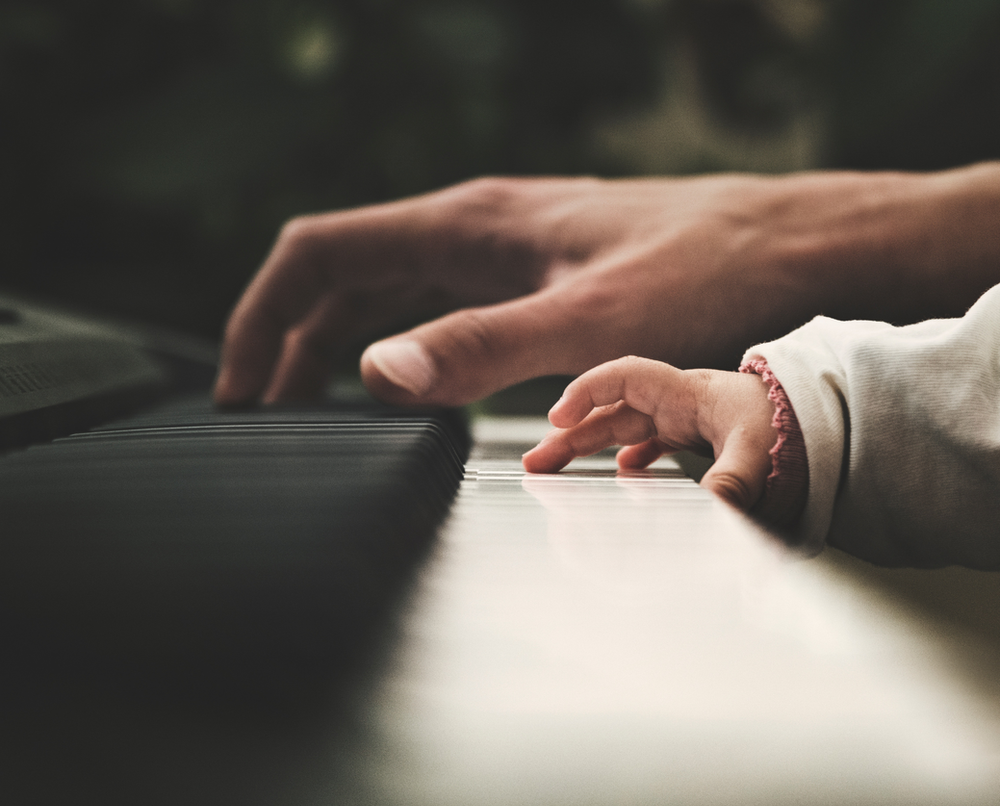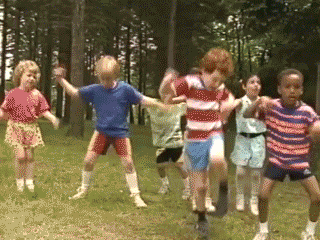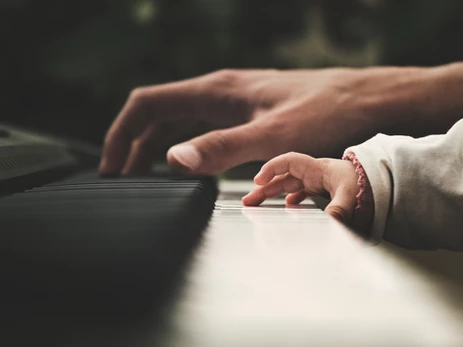Uncategorized
Piano lessons for 3 years old – Musical Stimulation
Piano Lessons for kids
Definition
Musical stimulation is the process based on interacting, communicating and expressing oneself with music through movement, singing or playing instruments.
The first children experiences, from 3 months to 3 years, are crucial and decisive for their subsequent development.
According to the White Book of Early Attention, early stimulation refers to the set of interventions involving children, their environment and family.
Stimulating the child, early, involves preventing psychomotor retardation, sensory deficits, neurological dysfunctions, language disorders, motor disorders, intellectual disabilities, etc., to achieve adequate socialization in their environment (UNIR, 2012a).
Early piano stimulation is also associated with the idea that the stimuli to develop the child’s learning and abilities must also serve “as a platform and basis for all subsequent learning” (Sánchez, 1999, p. 19). These stimuli should cover all the senses: visual, olfactory, gustatory, tactile.

Objective
The goal is for children to experience, explore and acquire specific knowledge that will serve them in future experiences.
It is about boosting children’s innate talent – experimenting, exploring… – taking into account their different sensitive and cognitive abilities, which can improve and prevent possible developmental deficits (Stein, 2006, p. 19).
We should bear in mind that musical stimulation does not consist of repeating a task until the child does it by heart. Musical stimulation will make them develop their senses more and better, such as memory, attention and creativity.
Main Contents
Musical stimulation in the classroom
In school, in addition to providing musical training, all students should also be allowed to enjoy the pleasure of listening, creating, imitating, improvising, and expressing music.
That is, the classroom should be a place where we can use these resources and develop all areas like the motor, social and emotional part of the students; especially the youngest children.
The areas that we must consider to develop during early stimulation are the following:
Sensory
We must provide the child with all kinds of sensory stimuli (auditory, visual and tactile). It is the best way to develop all the information channels well.
Social-affection
For the proper development of this area, the role that counts most is the parents of the child in question. In the musical aspect, music helps to relate to each other by doing activities in a school environment.
Emotion
Music is capable of creating emotions and emotional responses.
Cognitive factors
Music leads to various cognitive functions, such as memory, creativity, mathematical-musical logic or attention.
Motor skills
The child must manipulate and explore the world around him,
developing coordination between what he sees and what he touches. In the musical field, it is a key area in which we must focus correctly to play an instrument later. We can construct this process using the body itself, doing different things with the legs, hands, arms, etc.
Communication/language
Music is an element of nonverbal communication. In any case, a child must understand and communicate with the world around them. Concerning music, this area can be worked by imitating sounds, words, different tones…., causing the expressive capacity to develop.

Specific contents to work during piano lessons for 3-year-old students:
Sound and music:
Distinctive features (such as height, bell, intensity … etc.)
Rhythm (free pulse, sense of consistency in the pulse)
Music movement (ascending, descending)
Speed and dynamics of music.
Sound listening:
Recognition and discrimination of sounds.
Sound/song memorization
Appreciation and enjoy music
Voice and song:
Exploration in both spoken and sung voice.
The expressiveness in singing
The taste for group and solo singing.
Instruments:
Sound exploration of objects or percussion instruments
The care and respect with and towards the piano
Body movement:
Movements in sync with the music (speed, character …)
Sense of rhythm with the body, with or without displacement in space
Musical improvisation:
Imitation with the voice or the instrument of rhythmic and melodic patterns
Improvisation and creation of small melodic motifs
Sound creation as accompaniment of stories, poems …
Assessment and tastes of sounds, and decision to change or try new sounds.
Duration
Musical stimulation could be applied to students from 3-months-of-age to 3-years-of-age.
These first years of life constitute an especially critical stage since their perceptive, motor, cognitive, affective and social linguistic abilities will be configured during this time period. That is the reason why it’s a suitable time to learn and develop their first musical skills.
The latter, if successful, will allow a balanced interaction with the surrounding world.
Students eligible for the development of musical activities in the classroom:
Children at the age of three are usually very active, constantly asking questions and having a great imaginative and intuitive ability. This is essential when making contact with the instrument.
It is necessary to provide the student with all kinds of experiences related to the instrument and music, especially exemplifying musical concepts to something they can see and play; since music itself is an abstract element.
Conclusion
The process of musical stimulation is essential for further development with the instrument. During this process, brain areas are developed as critical as imagination or creativity, the motor part, body coordination, the sense of rhythm, etc.
These and many other brain functions are decisive when learning the piano or any other instrument, so we must pay attention and dedicate the necessary time for the student, so we ensure we fulfill our goal:
The ignition in the student of an uncontainable love for the instrument and music.
Get more information about piano lessons for kids here
Author: Iris Kreiman
References
https://www.musicopolix.com/blog-musicopolix/2018/01/04/importancia-estimulacion-musical-temprana/
https://www.andaresandco.com/estimulacion-musical/
https://sites.google.com/site/musicaydesarrolloinfantil/Home/estimulacion-musical

